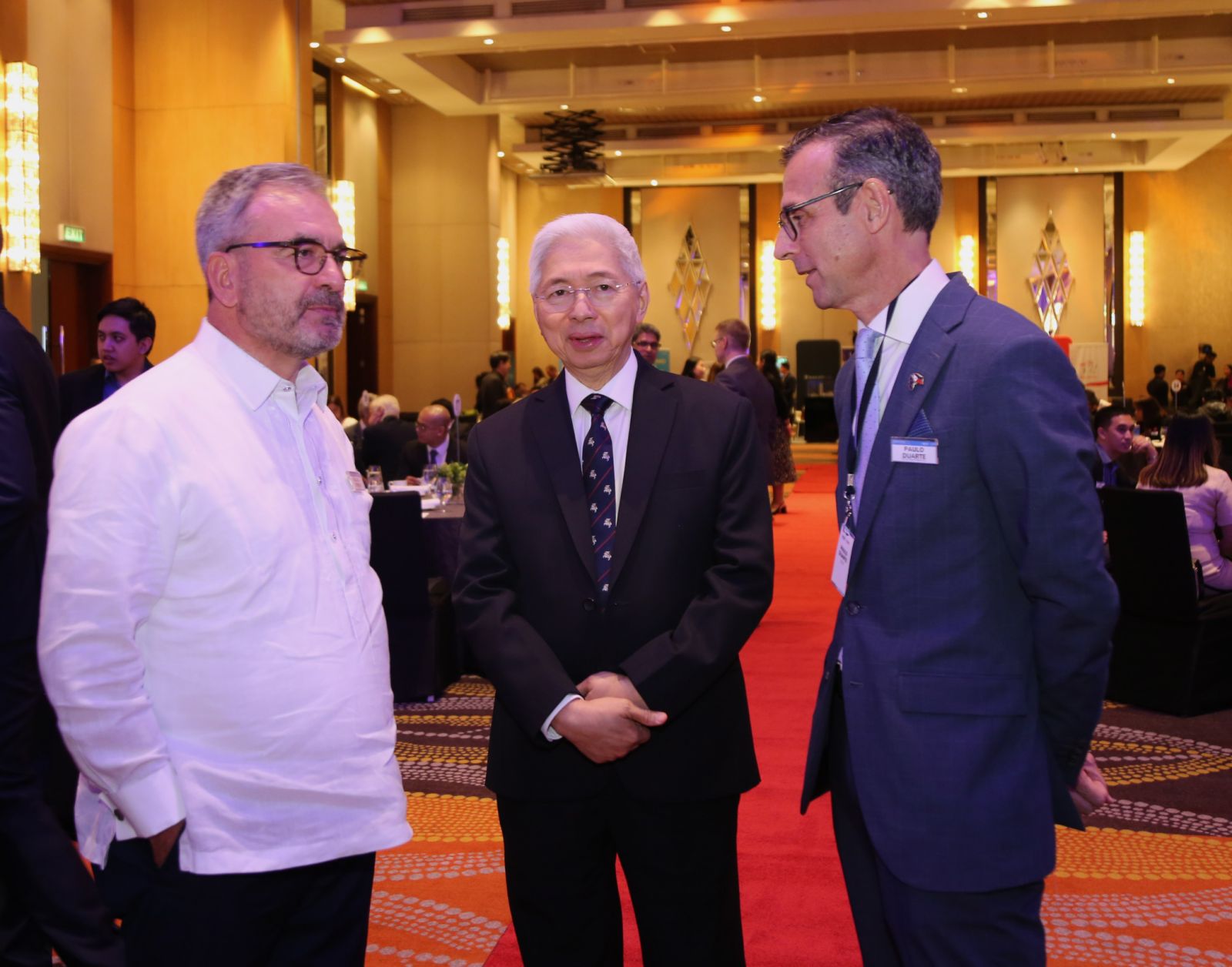

MANILA – The Philippines is primed to be the “premier investment destination” for European investors as it showcases a “robust economic stature.”
In his remarks during the 11th European-Philippines Dialogue hosted by the European Chamber of Commerce of the Philippines and the European Union-ASEAN Business Council (EU-ABC) last May 6, Department of Trade and Industry (DTI) Secretary Fred Pascual said that positive growth in both gross domestic product (GDP) and total investments approved by the Board of Investments (BOI) in 2023 is showing investors that the country is ready for EU investments.
“In 2023, our gross domestic product (GDP) growth rate surged to 5.6%, outpacing several Asian countries. This growth puts us on track to become a USD one-trillion economy by 2033, establishing the Philippines as a significant global player,” said Secretary Pascual.
Meanwhile, the total investments approved by the BOI this year increased by 15% year-on-year, with significant growth in the renewable energy and information technology and business process management sectors, Pascual stated.
He added that the Philippine Economic Zone Authority also reported a 19% increase in investment, particularly in manufacturing and expansion projects.
Pascual also highlighted the strategic initiatives of the current administration that have attracted promising investments and launched transformative reforms to improve the business climate, including the Corporate Recovery and Tax Incentives for Enterprises Act, along with amendments to the Foreign Investment Act, Retail Trade Liberalization Act, and Public Service Act.

From L to R: Ambassador to the Delegation of the EU to the Philippines Luc Veron, DTI Secretary
Fred Pascual, and European Chamber of Commerce of the Philippines President Paulo Duarte (Courtesy of DTI)
Credit rating firms like Moody's and Fitch recognize the Philippines' strong macroeconomic fundamentals that make it an attractive destination for investors seeking rich natural resources, young talented workforce, and a strategic location in Southeast Asia, Pascual noted.
Secretary Pascual also mentioned that the country is poised to become a leading market in Southeast Asia’s electric vehicle (EV) market, with a niche in manufacturing light truck platforms and social-purpose vehicles as its neighbours have already gained a head start in four-wheeled EVs.
The Philippines also boasts a wealth of renewable energy sources, like geothermal, solar, hydropower, and wind, with the World Bank estimating it at 178 gigawatts.
Given the EU’s preference for sustainable energy sources, the government established the Energy Virtual One-Stop-Shop (EVOSS) to streamline the permitting process for investors interested in energy projects, Pascual added.
For the technology and health sectors, Pascual said that the DTI is working closely with the education sector by boosting teachers’ training and upgrading the curricula to align them with industry needs.
Meanwhile, the national government calls for stronger collaboration with the EU on skills recognition, validation, and qualifications alignment—all aimed at strengthening education and training systems to better serve the needs of European businesses operating in the country.
Secretary Pascual also urged the EU businesses to explore opportunities in the Philippine agriculture sector as it accounts for around 9% of the GDP and employs nearly 24.4% of the country’s workforce in 2023.
“To seize these opportunities, the BOI is set to conduct a follow-through outbound mission to Europe for investment promotion with focus on key markets in Paris, London, and Berlin,” the DTI chief said as he announced plans to further economic ties with the EU countries.




